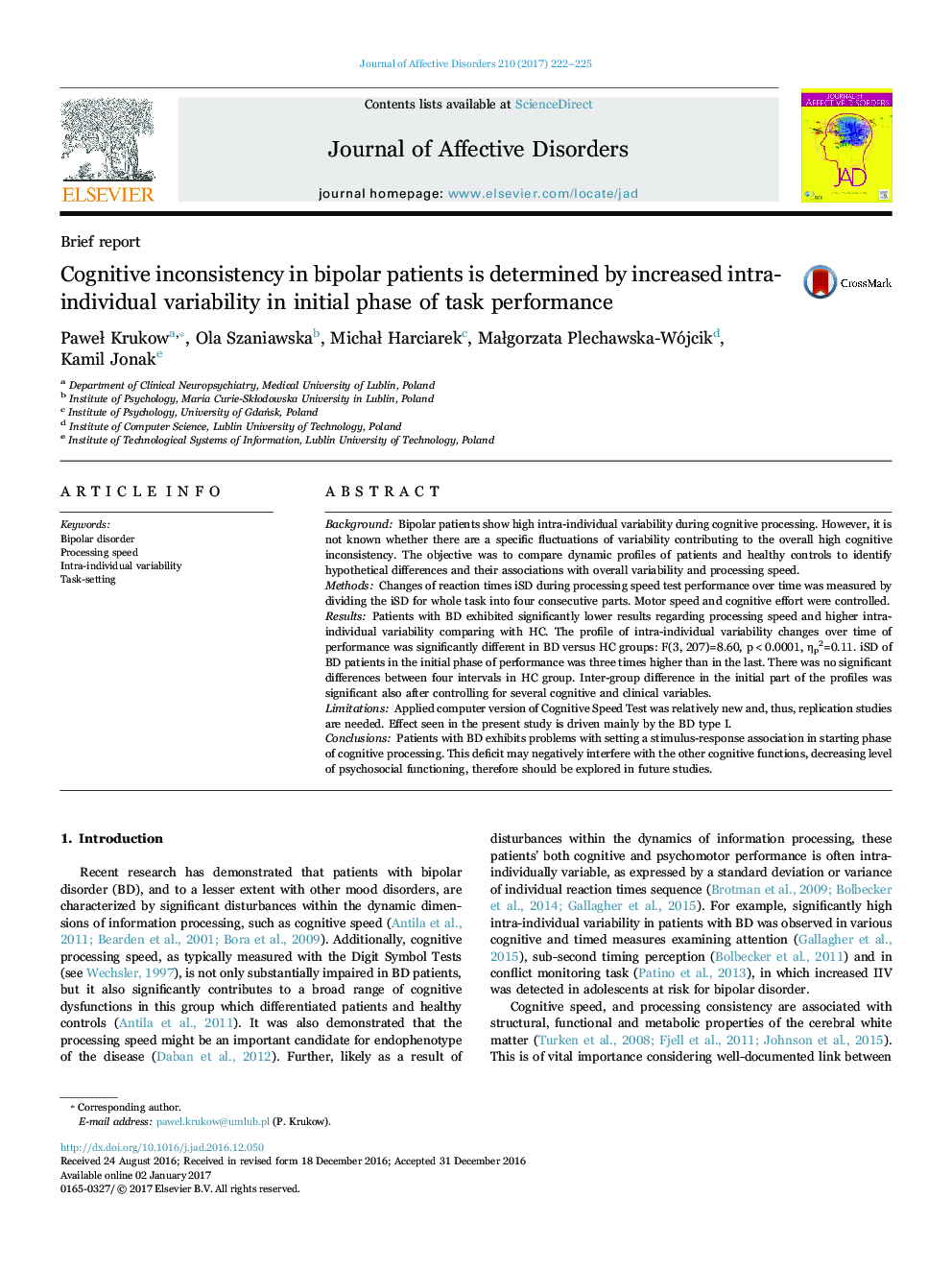| Article ID | Journal | Published Year | Pages | File Type |
|---|---|---|---|---|
| 5722394 | Journal of Affective Disorders | 2017 | 4 Pages |
â¢Little is known of intra-individual variability determinants in bipolar patients.â¢BD group showed deficits in cognitive consistency and processing speed.â¢BD patients showed very high intra-individual variability in initial phase of test.â¢High initial intra-individual variability contributed to overall cognitive consistency and speed deficits.â¢Impaired task-setting should be subjected to cognitive rehabilitation in BD patients.
BackgroundBipolar patients show high intra-individual variability during cognitive processing. However, it is not known whether there are a specific fluctuations of variability contributing to the overall high cognitive inconsistency. The objective was to compare dynamic profiles of patients and healthy controls to identify hypothetical differences and their associations with overall variability and processing speed.MethodsChanges of reaction times iSD during processing speed test performance over time was measured by dividing the iSD for whole task into four consecutive parts. Motor speed and cognitive effort were controlled.ResultsPatients with BD exhibited significantly lower results regarding processing speed and higher intra-individual variability comparing with HC. The profile of intra-individual variability changes over time of performance was significantly different in BD versus HC groups: F(3, 207)=8.60, p<0.0001, ηp2=0.11. iSD of BD patients in the initial phase of performance was three times higher than in the last. There was no significant differences between four intervals in HC group. Inter-group difference in the initial part of the profiles was significant also after controlling for several cognitive and clinical variables.LimitationsApplied computer version of Cognitive Speed Test was relatively new and, thus, replication studies are needed. Effect seen in the present study is driven mainly by the BD type I.ConclusionsPatients with BD exhibits problems with setting a stimulus-response association in starting phase of cognitive processing. This deficit may negatively interfere with the other cognitive functions, decreasing level of psychosocial functioning, therefore should be explored in future studies.
